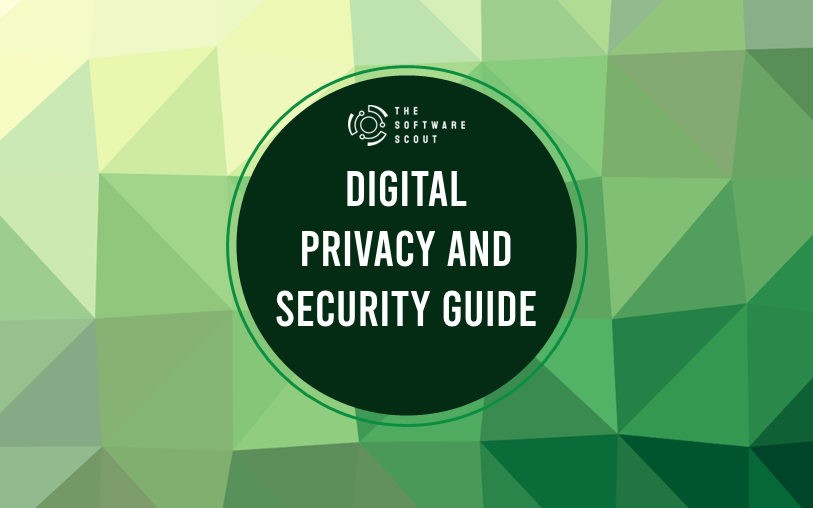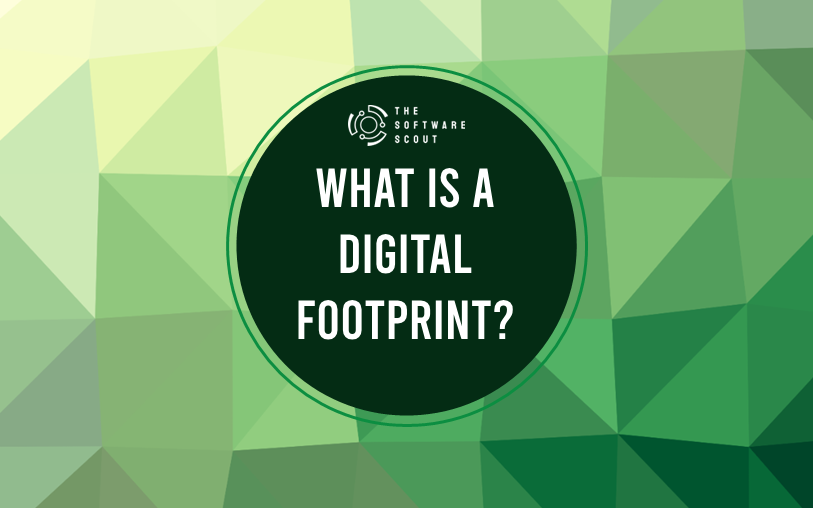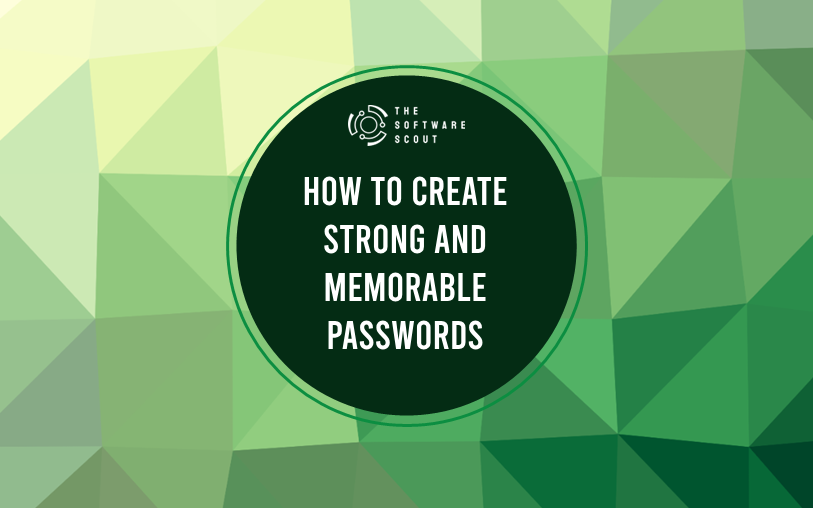As technology becomes more integrated into our daily lives, digital privacy and security are no longer concerns reserved for tech-savvy individuals. Whether you’re sending a quick email, shopping online, or managing your bank account, your personal data is constantly being collected, shared, and potentially exposed.
In 2025 the stakes are higher than ever. Cybercriminals are becoming more sophisticated, data breaches more frequent, and privacy concerns more widespread. Yet, there are effective steps anyone can take to protect themselves online. This guide covers actionable tips and tools to safeguard your digital life.

Why Digital Privacy Matters in 2025
We’re all generating more personal data than ever before. Our phones track our locations, social media platforms monitor our interests, and apps often demand access to far more than they need. All of this information can be used not only for personalized advertising but also by malicious actors seeking to steal identities, commit fraud, or blackmail individuals.
Here’s why prioritizing your digital privacy is critical in 2025:
- Rising Identity Theft: Criminals can use personal data to open credit accounts, take out loans, or access existing financial accounts.
- Targeted Scams and Phishing: With detailed information, cybercriminals can craft highly convincing scams.
- Loss of Personal Control: Your digital footprint can be exploited by companies for profit without your consent.
- Physical Security: Location data and personal schedules can potentially be used to harm individuals offline.
Understanding these threats is the first step. Let’s explore how to protect yourself.
Protecting Your Privacy: 8 Practical Tips
1. Use Strong, Unique Passwords for Every Account
Reusing passwords across different platforms is like handing out copies of your house key to strangers. One breach can compromise your entire online presence. Here’s how to fix that:
- Password Managers: Use a reliable password manager to generate and store complex, unique passwords for every account. Popular options include LastPass, Bitwarden, and 1Password.
- Two-Factor Authentication (2FA): Enable 2FA wherever possible. This adds an extra layer of security by requiring a second form of verification (e.g., a code sent to your phone).
2. Enable End-to-End Encryption for Communications
Not all messages are created equal. End-to-end encryption ensures that only you and the person you’re communicating with can read the message, preventing outsiders from intercepting your conversations. Some secure options include:
- Signal: Free, open-source, and privacy-focused. Signal encrypts calls, messages, and even video chats.
- WhatsApp: While owned by Facebook, WhatsApp offers strong encryption for individual and group conversations.
- ProtonMail: A secure, encrypted email service that keeps your messages private.
3. Be Wary of Public Wi-Fi
Public Wi-Fi networks, like those at coffee shops or airports, are often unsecured, making it easy for hackers to intercept your data. If you must use public Wi-Fi:
- Use a VPN: A Virtual Private Network (VPN) encrypts your internet connection, hiding your online activity from potential snoopers. Top-rated VPNs for 2025 include NordVPN, ExpressVPN, and ProtonVPN.
- Avoid Sensitive Transactions: Don’t log into bank accounts or shop online while on public networks.
4. Regularly Update Your Devices and Software
Outdated software is a security vulnerability waiting to be exploited. Always keep your operating systems, apps, and devices up-to-date. Here’s why:
- Patches Vulnerabilities: Updates often include patches for newly discovered security flaws.
- Improves Performance: Many updates also enhance the overall speed and functionality of your device.
- Automated Updates: Enable automatic updates to ensure you’re always protected.
5. Minimize Data Sharing on Social Media
Social media platforms thrive on personal information. While you may enjoy sharing your life with friends, keep in mind that oversharing can be risky. Here’s how to manage what you share:
- Limit Personal Details: Avoid posting sensitive information like your address, vacation plans, or job details.
- Adjust Privacy Settings: Ensure your profiles are set to private, limiting access to only people you trust.
- Review Tagging Settings: Control who can tag you in posts or share your photos.
6. Be Cautious with Browser Extensions and Apps
Not all apps or browser extensions are safe. Some collect data or even inject malware onto your device. Here’s how to reduce the risk:
- Only Download from Trusted Sources: Stick to official app stores like Google Play and the Apple App Store, or trusted repositories.
- Check Permissions: Before installing, check what data the app or extension requests. If it’s asking for too much, reconsider.
- Regularly Review Installed Apps: Delete apps you no longer use or trust.
7. Secure Your Home Network
Your home Wi-Fi network can be an entry point for hackers if not properly secured. Here’s how to tighten your home network security:
- Change Default Router Settings: Default usernames and passwords are common knowledge and can be exploited. Set a strong, unique password.
- Enable WPA3 Encryption: This is the latest and most secure encryption protocol for Wi-Fi.
- Segment Your Network: Consider creating a guest network for visitors and IoT devices to prevent unauthorized access to your primary network.
8. Be Vigilant About Phishing and Scams
Phishing attacks are becoming more sophisticated. These scams trick you into giving away personal information, often by pretending to be a legitimate company or individual. To protect yourself:
- Check Email Senders Carefully: Look for slight misspellings or unusual email addresses.
- Hover Over Links: Always hover over links before clicking to see where they lead.
- Don’t Share Personal Information: Legitimate companies won’t ask for sensitive information through email or text.
The Role of Privacy Tools in 2025
1. VPNs: A Must-Have for Privacy
VPNs encrypt your internet traffic, hiding your browsing activity from your Internet Service Provider (ISP), hackers, and even government agencies. In 2025, VPN usage has become mainstream due to increased privacy concerns. When choosing a VPN, consider:
- No-Log Policies: Ensure the VPN doesn’t keep records of your online activity.
- Global Servers: The more server locations, the better your browsing experience.
- Speed and Reliability: Not all VPNs offer the same speed. Look for one with strong user reviews on performance.
2. Encrypted Cloud Storage
Many of us store sensitive data in the cloud, from family photos to important documents. Opt for cloud services that prioritize encryption:
- pCloud: Offers client-side encryption and gives you control over who can access your files.
- Tresorit: Swiss-based with strong privacy laws, known for its zero-knowledge encryption.
- Sync.com: Fully encrypted cloud storage, making sure only you can access your data.
3. Ad Blockers and Privacy-Focused Browsers
Advertising networks track your browsing habits across websites. Here’s how to block them:
- Ad Blockers: Tools like uBlock Origin and AdGuard block intrusive ads and trackers.
- Privacy Browsers: Use browsers that prioritize privacy, like Brave or Firefox with privacy extensions like DuckDuckGo Privacy Essentials.
The Importance of Digital Minimalism for Privacy
One of the most overlooked strategies for maintaining digital privacy in 2025 is simply reducing your online footprint. The more services, apps, and websites you use, the more your data is scattered across the internet, increasing your vulnerability. Digital minimalism isn’t about rejecting technology, but rather using it purposefully and with restraint.
Benefits of Digital Minimalism:
- Less Data Exposure: By reducing the number of services you use, you limit the amount of data available for companies to track and hackers to exploit.
- Improved Focus: A cluttered digital life can lead to distractions. Minimizing unnecessary apps and accounts can help you stay focused and productive.
- Easier Account Management: Fewer accounts mean fewer passwords to manage, reducing the chance of weak links in your security.
How to Practice Digital Minimalism:
- Audit Your Accounts: Take stock of all the apps, subscriptions, and accounts you have. If you’re not actively using them, consider deleting them.
- Consolidate Services: Use all-in-one tools or services that offer multiple functions (e.g., Google Drive for cloud storage and collaboration) to reduce your digital sprawl.
- Unsubscribe from Email Lists: Unnecessary emails not only clutter your inbox but also give companies access to your data. Use tools like Unroll.Me to unsubscribe from mailing lists you no longer care about.
By embracing digital minimalism, you can enhance your online privacy by shrinking your data footprint and focusing on the tools and services that matter most to you.
The Impact of AI on Privacy and Security in 2025
Artificial Intelligence (AI) is transforming the tech landscape, but with this progress comes significant privacy concerns. AI is increasingly being used by companies to analyze user behavior, by governments for surveillance, and even by cybercriminals to automate attacks. Understanding how AI affects your privacy is key to staying protected in 2025.
How AI Poses Privacy Risks:
- Data Collection and Profiling: AI systems rely on massive amounts of personal data to function effectively. From smart home assistants to facial recognition software, these systems collect more information than most users realize, often without explicit consent.
- Surveillance: Governments and corporations are leveraging AI to enhance surveillance capabilities. This includes the ability to track your online activities, physical location, and even predict future behavior.
- Automated Attacks: Cybercriminals are using AI to craft highly personalized phishing attacks and even exploit vulnerabilities in real time, making cyberattacks more efficient and harder to detect.
How to Defend Against AI-Driven Privacy Threats:
- Use AI-Free Alternatives: Opt for privacy-first tools and services that don’t rely on extensive AI-driven data collection. For instance, DuckDuckGo is a search engine that doesn’t track your search history.
- Restrict Permissions: Be mindful of how much access you grant AI-driven services. For instance, limit what voice assistants like Siri or Alexa can access, and consider turning off features that may compromise your privacy.
- Stay Informed: Keep up with how companies use AI and the evolving privacy implications. AI regulations are still developing, and understanding your rights will help you take action when necessary.
AI is a double-edged sword in the realm of privacy, offering both enhanced capabilities and new risks. Staying aware of how it’s being used against you is crucial for maintaining control over your personal data.
Privacy Regulations and What They Mean for You
With the rise of privacy concerns, governments across the globe have started enacting regulations aimed at protecting consumers. In 2025, privacy laws are more relevant than ever, but understanding what they mean for you as an everyday user can be confusing. Knowing how these regulations impact your online experience helps you make informed decisions about your digital presence.
Key Privacy Regulations to Know:
- GDPR (General Data Protection Regulation): The European Union’s GDPR gives individuals greater control over their personal data. Even if you’re not in Europe, many companies comply with GDPR globally, giving you the right to access, correct, or delete your data.
- CCPA (California Consumer Privacy Act): Similar to GDPR, CCPA applies to residents of California but has ripple effects for consumers across the U.S. It allows individuals to opt out of the sale of their personal data and request details about how their data is being used.
- ePrivacy Regulation: Set to complement the GDPR, the EU’s ePrivacy Regulation focuses specifically on online communications, ensuring that messaging apps, VoIP services, and other electronic communication tools maintain high standards of confidentiality.
How These Laws Protect You:
- Transparency: Companies are required to inform you of how they collect and use your data, giving you more control over who has access to your personal information.
- Right to Be Forgotten: You can request that companies delete your data, which is especially useful when you want to erase your digital history or stop engaging with a specific service.
- Data Portability: Privacy laws often allow you to transfer your data from one service to another, ensuring that you retain ownership over your personal information, even when switching platforms.
What You Can Do:
- Review Privacy Policies: While privacy policies may seem tedious, they are becoming more consumer-friendly thanks to these laws. Take a moment to review them before sharing personal information with a new service.
- Exercise Your Rights: If a company holds your personal data, don’t hesitate to request access to it or ask for it to be deleted if you’re no longer comfortable with how it’s being used.
- Use Tools That Comply with Regulations: Stick with services that comply with the strictest privacy laws, like GDPR or CCPA, as they tend to follow better privacy practices across the board.
The landscape of privacy laws is evolving, but the trend is moving toward more robust consumer protection. By understanding these regulations, you can take advantage of the rights you have to control your data.
What’s Next for Digital Security?
As technology evolves, so will the threats. In 2025, Artificial Intelligence (AI) is both a tool for enhancing cybersecurity and a weapon for cybercriminals. AI can be used to identify vulnerabilities, create convincing phishing scams, and automate cyberattacks. Here’s what to expect in the near future:
- Increased Use of Biometrics: Passwords may soon be a thing of the past, replaced by biometrics like facial recognition or fingerprint scans. While convenient, this raises new privacy concerns about the storage of biometric data.
- Stronger Privacy Laws: Governments worldwide are slowly catching up with the need for privacy regulations. The General Data Protection Regulation (GDPR) in Europe and the California Consumer Privacy Act (CCPA) are likely just the beginning.
Final Thoughts
Staying safe online in 2025 requires a proactive approach to both privacy and security. By using the tools and strategies outlined in this guide—strong passwords, encryption, VPNs, and more—you can significantly reduce the risk of falling victim to cyberattacks or data breaches.
Remember, digital privacy isn’t about hiding—it’s about controlling who has access to your personal information. Start making changes today to ensure you have the power to protect yourself and your data.
Boyd Hudson is a technology writer at The Software Scout with over 15 years of experience in technology roles across the Asia-Pacific region. He covers a wide range of tech topics, from software solutions to emerging industry trends


Pingback: What is a Digital Footprint? Simple Steps to Control Your Data Online
Pingback: How to Create Strong and Memorable Passwords
Pingback: 10 Tips to Protect Your Personal Information on Social Media